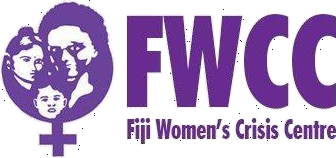Organised by the Fiji Women’s Crisis Centre, the four-yearly meeting brings together members of the Pacific Women’s Network Against Violence Against Women established in 1992 to better coordinate the efforts to eliminate sexual and gender-based violence.
This year’s regional meeting is aimed at examining ways of responding to and preventing violence against women and girls, as well as how these women and girls can access justice.
About 60 participants from as far as Bougainville in Papua New Guinea, and the Marshall Islands in the northern Pacific are gathered at the Novotel hotel in Nadi to discuss the progress made in eliminating sexual and gender-based violence, the work being done and what the tasks that remain.
Opening the five-day meeting this morning, Ms Williams said: “We’re still here, talking, because the problem of violence against women is still very much with us. We can only hope that one day we have other, more uplifting reasons to gather.
“But while the problems remain, the solutions, I believe, are expanding and gathering momentum,” said Ms Williams, Australia’s first Global Ambassador for Women and Girls.
Ms Williams highlighted Australia’s efforts to eliminate violence against women and girls in the region, as well a new initiative that commits up to AU$320 million (FJ$589m) over 10 years to help shift entrenched barriers to women’s social, economic and political participation across Pacific Island Forum countries.
Called the Pacific Women Shaping Pacific Development Initiative, it builds on the sustained work of many Pacific women and organisations to provide much needed services for women affected by violence and to advocate for police and service delivery reform.
Ms Williams said: “The initiative recognises that issues of political empowerment, economic empowerment and violence are interconnected. Because if we are serious about securing human rights and national security, we must be serious about stopping violence.
“If we are serious about achieving gender equity and the empowerment of women and girls, we must be serious about stopping violence.”
Fiji Women’s Crisis Centre Coordinator Shamima Ali recalled that the first Pacific regional meeting on violence against women was organised by FWCC in Suva in 1992 involving women from 15 Pacific Islands countries.
“Then there were only two established centres: the FWCC and the Punaga Tauturu in the Cook Islands. The network was established then and has endured, and now there are nearly 40 programmes addressing violence against women and girls in the network,” Ms Ali said.
“When we met in 1992, it was the first time ever Pacific women had met to discuss this tragic phenomenon – violence against women, rape, child sexual abuse, and sexual harassment. Nearly every woman in that meeting had experienced one or another form of violence, some still suffering.
“We realised then, after two weeks of talking, discussing, crying and sharing, just how big and prevalent this problem was. What was more tragic was the high levels of acceptance in our societies of this torture of women and girls, and the lack of response by the state; the use of religion and culture to deny women justice and justify the violence.”
Much has changed in the two decades since the first meeting, but much more remains to be done, says Ms Ali.
“While we still have high levels of gender-based violence in our societies, a lot of work is being done to eliminate it. And there are new, unexpected voices being raised against violence against women and girls.”
The four-yearly regional meeting reviews the situation over the past years and identifies challenges as well as celebrates success.
The five-day meeting will address policing and access to justice, ethical standards for shelters and other service provisions, working with men to eliminate gender-based violence, as well as international campaigns and processes.
ENDS
FOR COMMENTS ON THE MEETING OR ON THE ISSUE OF VIOLENCE AGAINST WOMEN AND GIRLS
Please contact FWCC Coordinator Shamima Ali on 9992875.
